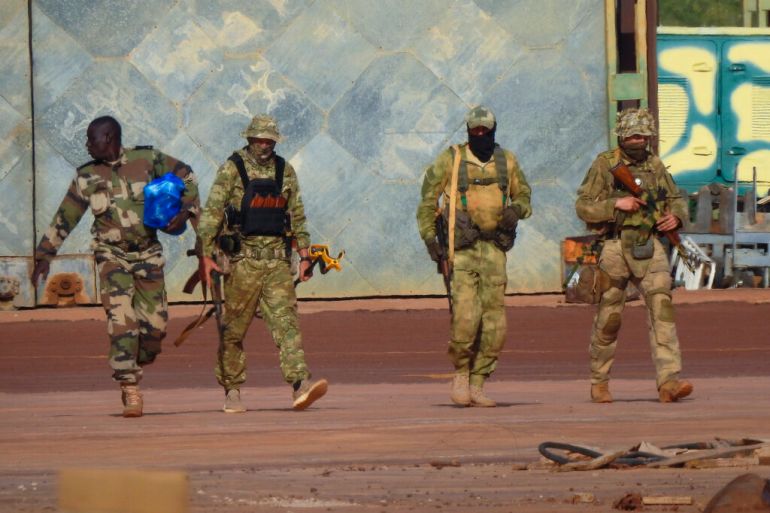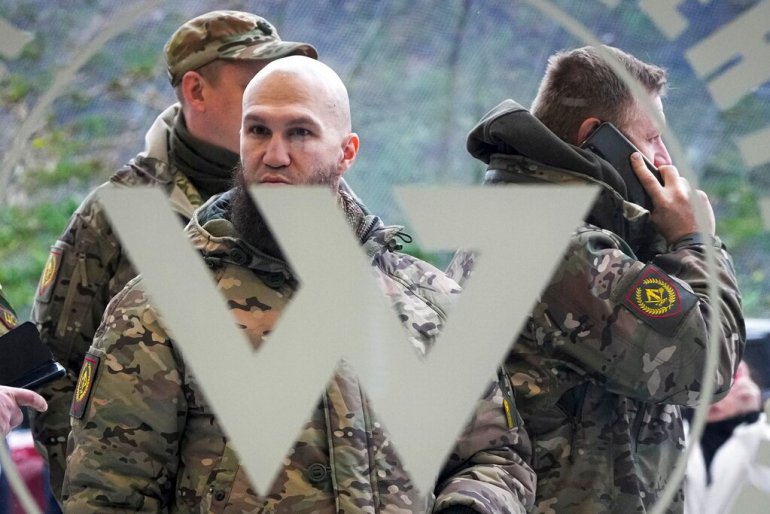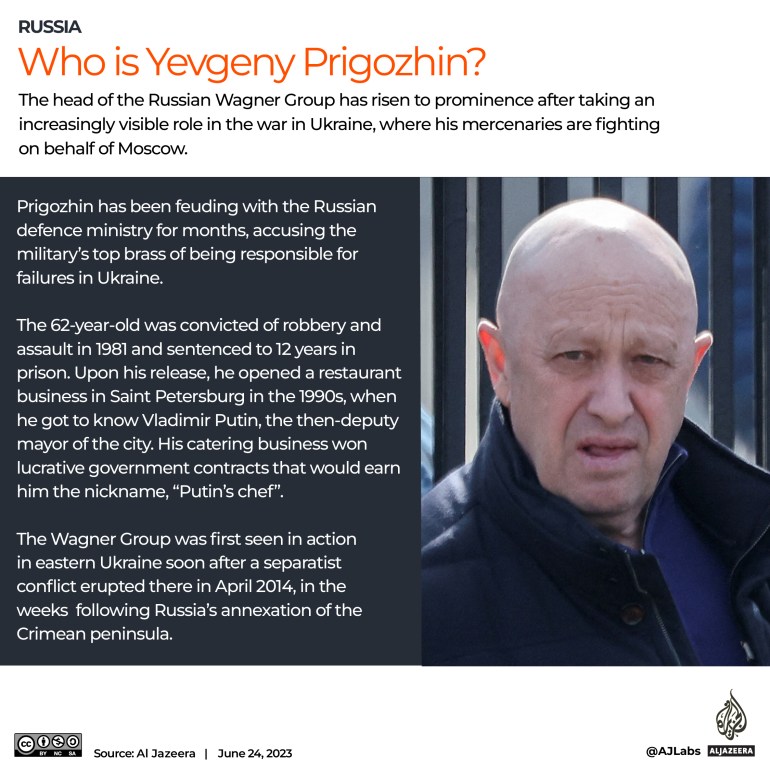Wagner revolt in Russia dims outlook for its operations in Africa
Mali and CAR sought closer ties with Russia and military support to fight armed groups in both countries.

A revolt by the Wagner force in Russia poses a diplomatic quandary for Mali and Central African Republic (CAR), where forces from the mercenary group have played an increasingly central role in long-running internal conflicts.
As the Wagner fighters barrelled towards Moscow on Saturday after seizing a southern city overnight, spokespeople for the governments of Mali and CAR declined to comment on the turmoil and how it might affect their security strategies against armed groups.
Keep reading
list of 3 itemsQ&A: RSF adviser on Sudan ceasefire, Wagner and civilian killings
Chechen forces sign contract with Russia after Wagner’s refusal
Both countries have sought closer ties with Russia and military support to battle the armed fighters, saying in the past that their military cooperation agreements are with Russia rather than with Wagner.
“[Wagner’s] presence in Mali is sponsored by the Kremlin and if Wagner is at odds with the Kremlin … naturally Mali will suffer the consequences on the security front,” said Malian political analyst Bassirou Doumbia.
Mali, where military authorities seized power in coups in 2020 and 2021, is battling a years-long operation against armed groups affiliated with ISIL (ISIS) and al-Qaeda. It has said Russian forces there are not Wagner mercenaries but trainers helping local troops with equipment bought from Russia.
But the alliance has soured relations with the United Nations and alienated Western powers, who have said the fighters are Wagner forces and have alleged that they have committed possible war crimes alongside Malian soldiers.
The governments in Mali and Russia have denied the allegations.
Wagner’s continued presence in Mali amid the continuing insurrection in Russia could prove problematic for Bamako’s relations with Moscow, which last year committed to send Mali shipments of fuel, fertiliser and food worth about $100m.
“[The] exact consequences for Mali really depend on factors largely unknown such as the organisational autonomy of Wagner and their chain of command, and, of course, whether things escalate or not between [Russian President Vladimir] Putin and Wagner,” said Yvan Guichaoua, senior lecturer at the Brussels School of International Studies.
He said there were no reports of unexpected troop movements in Mali as of Saturday morning.

Rebel insurgencies
The power struggle in Russia could also have significant ramifications for CAR, where hundreds of Russian operatives, including many from Wagner, have been helping the government fight several rebel insurgencies since 2018.
Both CAR and Mali have been drawn increasingly into Russia’s orbit in recent years as the Kremlin sought greater influence in Francophone Africa to the dismay of former colonial power France, which has faced anti-French protests in the region and worsening relations with several West African governments.
In February, French President Emmanuel Macron described the deployment of Wagner troops in Africa as the “life insurance of failing regimes in Africa” that will only sow misery.
A suspension of Wagner operations in Africa could impact the group’s finances. The United States last October accused the mercenaries of exploiting natural resources in CAR, Mali and elsewhere to fund fighting in Ukraine – a charge Russia rejected at the time.

Wagner began operating in Africa and the Middle East when it was founded in 2014 and was thought to have about 5,000 fighters, but has grown significantly since then.
The paramilitary group made a name for itself internationally through its involvement in Russia’s annexation of Ukraine’s Crimean Peninsula in 2014, a move widely viewed as illegal by the international community.
The group has also been involved in the continuing Russia-Ukraine war that began in February 2022 after Wagner forces were deployed in Ukraine on March 28, 2022. The group has 50,000 active fighters in Ukraine, according to British intelligence.
According to the US National Security Council, while about 80 percent of its troops in Ukraine were withdrawn from prisons, it was stated that Wagner was effective in Russia’s alleged capture of Bakhmut in eastern Ukraine’s Donetsk region.
Wagner has also sent fighters outside Ukraine to various conflicts in the Middle East and Africa, including the war in Syria. The group has cemented strong ties with several African governments over the past decade with operations in at least eight African nations, according to leaked US documents.